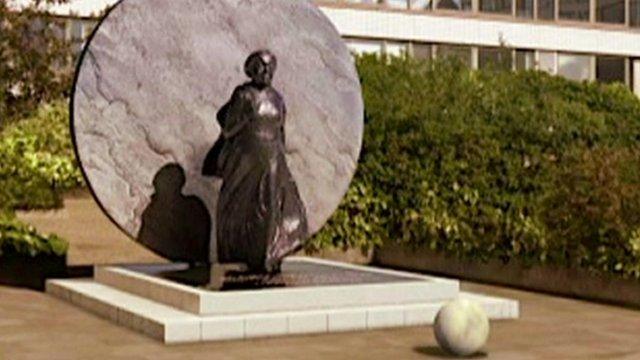Black History Month in Britain: Great women you should know about
- Published
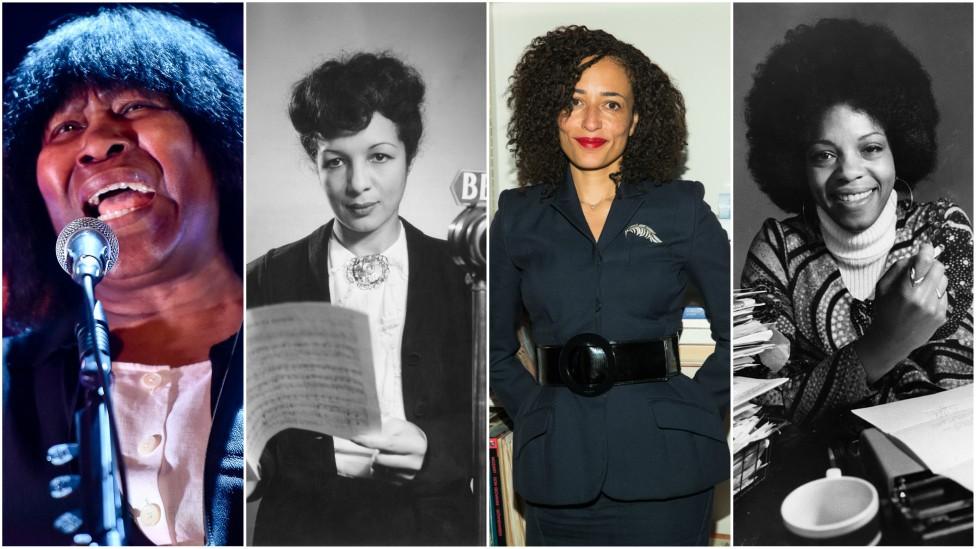
Black History Month has been marked in the UK for more than 30 years. It takes place during the month of October.
It is held to highlight and celebrate the achievements and contributions of the black community in the UK.
Throughout history, black people have made huge contributions to society in the fields of art, music, science, literature and many more areas.
Read More: The black men who made history in Britain
But, in the past, these contributions have often been ignored or played down because black people weren't treated the same way as other people because of the colour of their skin.
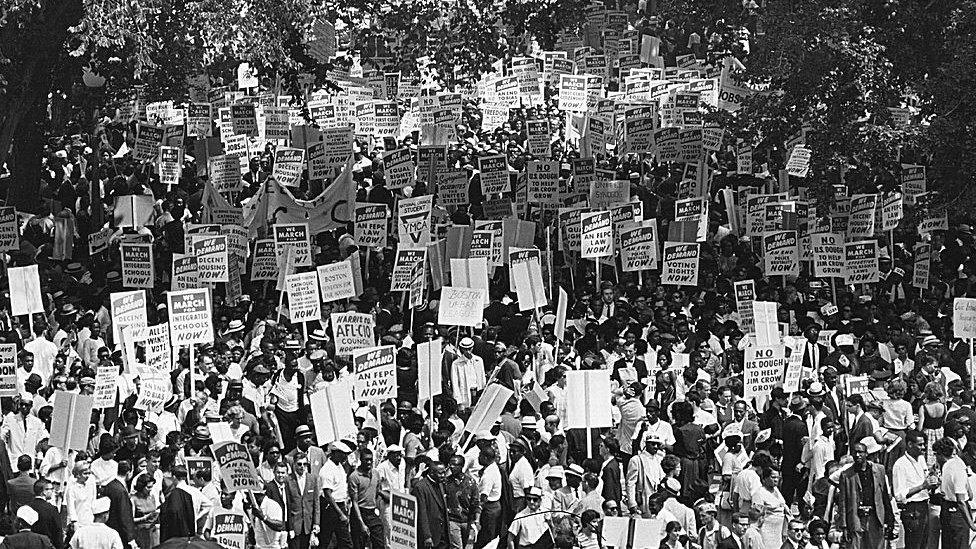
This picture from the 1960s shows people protesting for equal rights
Black History Month aims to address this unfairness by celebrating the achievements and contributions of black people in the UK.
Read on to find out about the incredible things that 11 women in particular have done for Britain.
Phillis Wheatley (1753-1784)
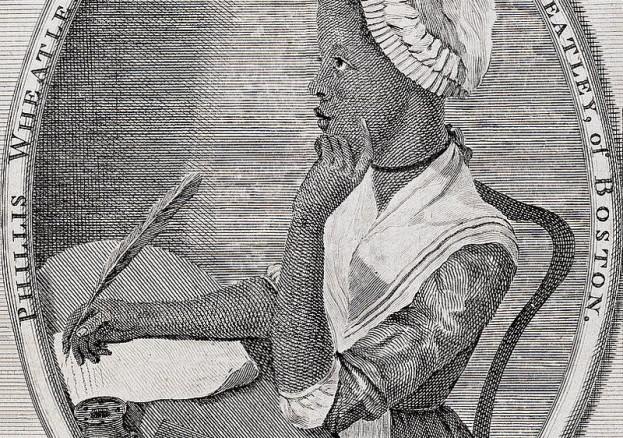
Phillis Wheatley was born in West Africa.
When she was a young girl, she was put on board a ship and sent to the US, where she was sold into slavery to work for a family called the Wheatleys. She was named after that ship - the Phillis.
Phillis was taught to read and write, which was unusual at the time for people in her position.
She wrote her first poem at the age of 14. At the age of 20, she moved to England with her son and within a year, published her first book.
This made her the first African-American poet to be published, with her first volume of poetry in 1773.
Her brilliant writing proved that enslaved women could have amazing intellects, when people hadn't believed it possible. This was one of the factors that contributed towards the anti-slavery movement.
Mary Seacole (1805-1881)
Who was Mary Seacole?
Mary Seacole was born and grew up in Jamaica, but came to England in 1854.
She asked the War Office for permission to help wounded soldiers, who were fighting in the Crimean War (1853-1856), but she wasn't allowed.
So she raised the money herself and travelled to Balaclava, Ukraine. Here, she looked after injured British soldiers.
Despite all that she did, when she died not many people knew who she was or the amazing work she had done. Most people remember Florence Nightingale, who helped many people too.
However, recently supporters have campaigned to make sure people remember everything Mary Seacole did too.
In 2016, a statue of her was built outside St Thomas' Hospital in London. Ayshah went to find out more about it ahead of it being built.
Fanny Eaton (1835-unknown)
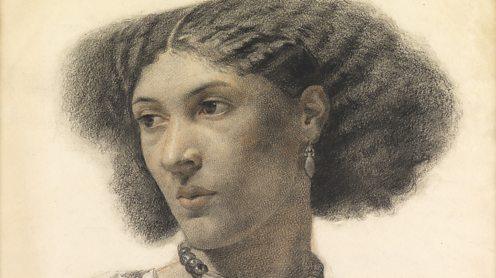
You can see Fanny Eaton featured in a lot of artwork by Pre-Raphaelite artists (a period of art that started in the mid-1880s).
That's because she worked as a model for several well-known artists.
She moved to London from Jamaica and worked at the Royal Academy. The Royal Academy in London was set up in 1768 and is an extremely famous art school - especially famous for its painting, sculpture and architecture.
One of the artists that Fanny modelled for was called Dante Gabriel Rossetti, who praised how beautiful Fanny was. This was significant because, at the time, many people did not see black people as beautiful, so black women were not featured very much in Western art.
Fanny Eaton challenged this Western concept of beauty and is an important figure in the history of art as a result of that.
Evelyn Dove (1902-1987)
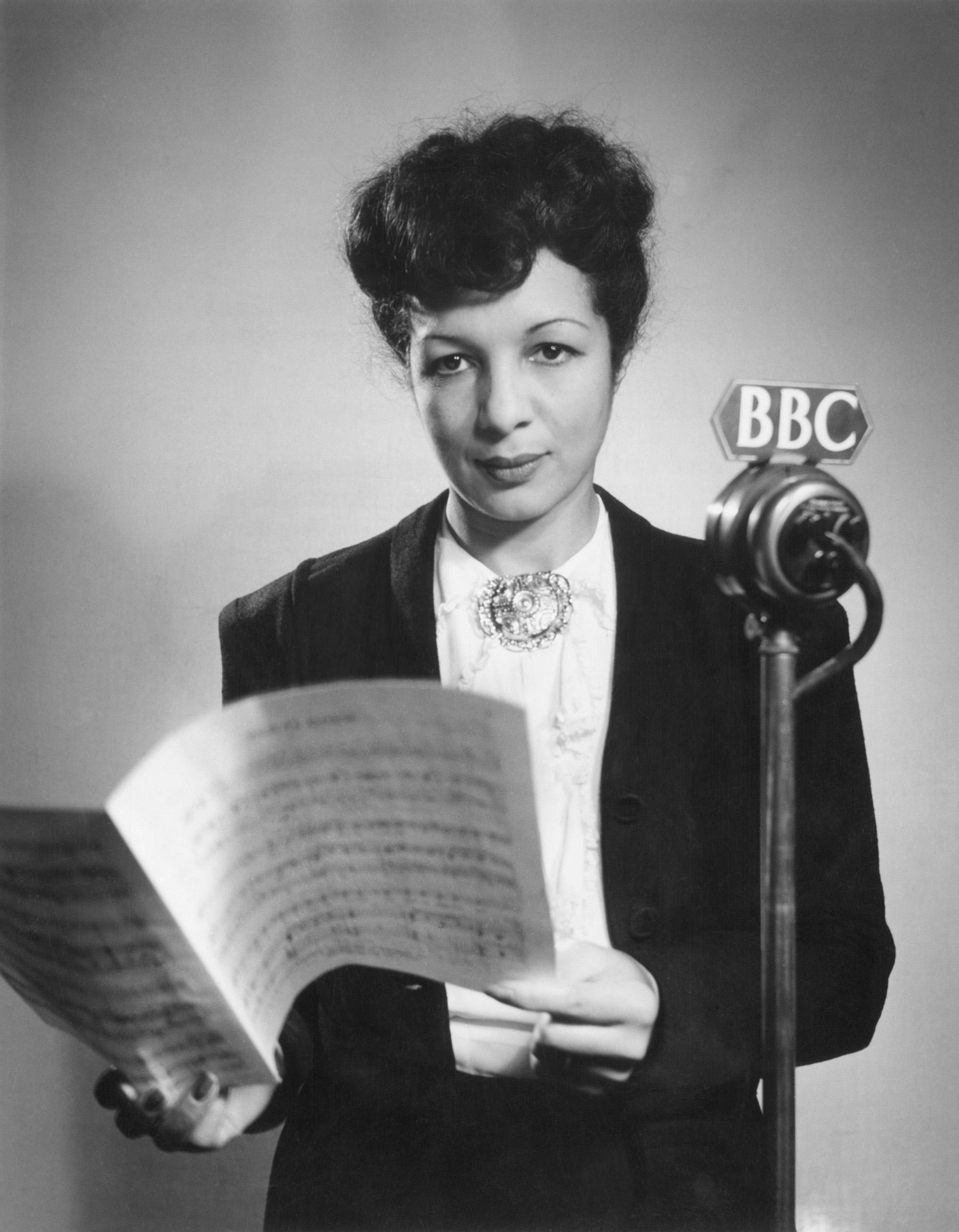
Evelyn was the daughter of a lawyer from Sierra Leone in Africa who married a woman from England.
A racial prejudice is having a negative attitude towards someone or a group of people because of their race
Evelyn was a student at the Royal Academy of Music, which is a bit like the Royal Academy where Fanny Eaton modelled, but for music.
While she was there, she performed with some of the world's top black entertainers and went on to become a singing and acting star of the 1920s.
She became famous all over the world, at a time when black female performers would struggle to get the same recognition as white entertainers because of racial prejudices.
Lilian Bader (1918-2015)
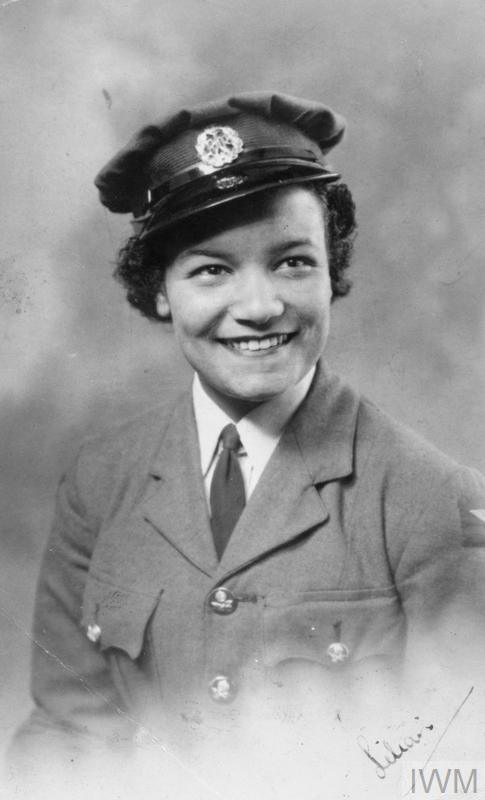
Lilian Bader was born in 1918 in Liverpool and went on to become one of the very first black women to join the British Armed Forces.
Starting out as a canteen assistant at an army base in Yorkshire, she eventually trained as an instrument repairer, before becoming a leading aircraftwoman and soon afterwards earning herself the rank of Corporal.
Three generations of her family served in the armed forces.
When she left the Army to have children of her own, she retrained and earned a degree from the University of London to become a teacher.
Joan Armatrading (1950-today)
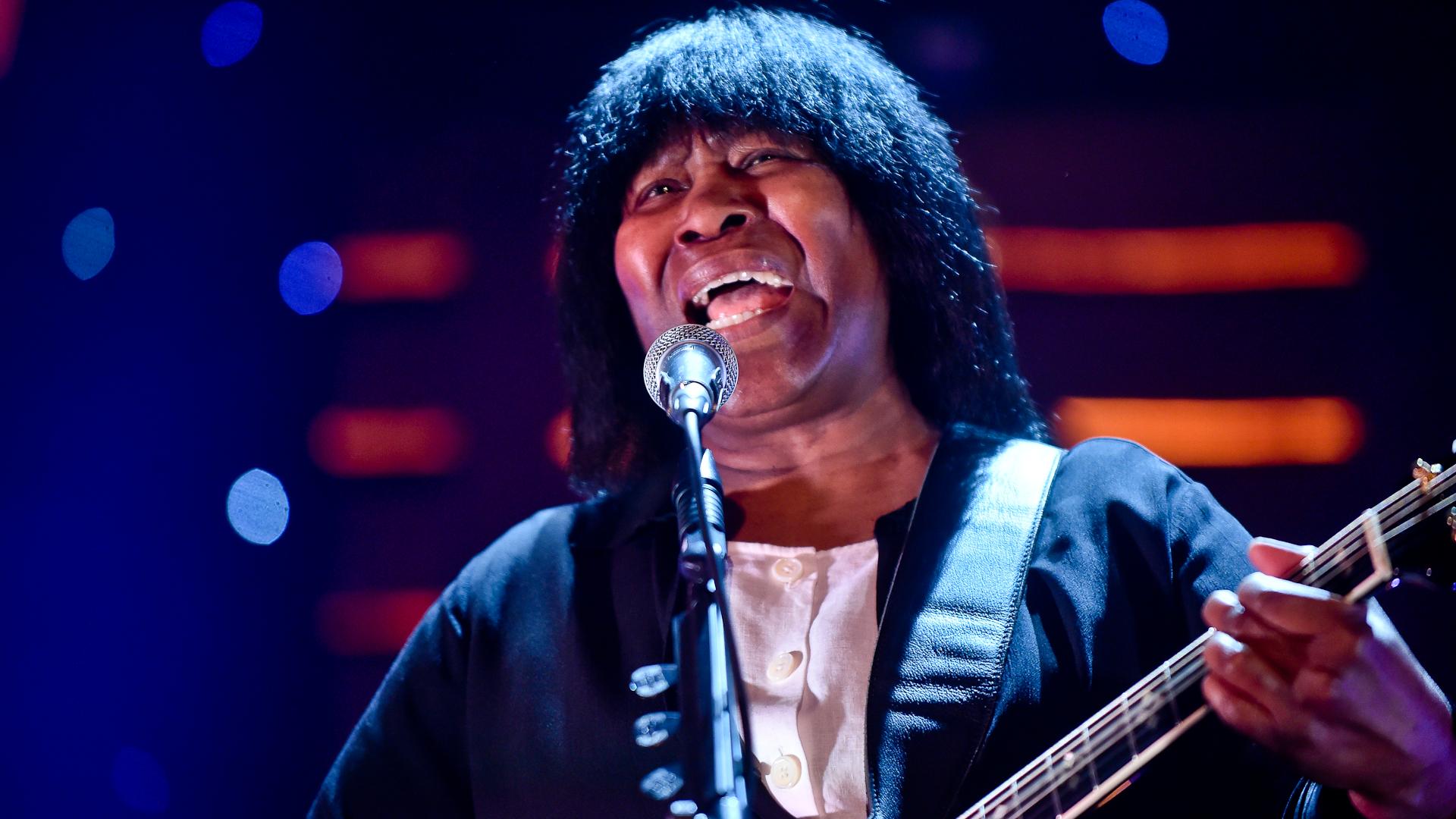
Back to music and Joan Armatrading is a name that if you are into blues you might already know.
This is because she was the first female UK artist to be nominated for a Grammy in the blues category. She went on to be nominated three times.
She arrived in the UK at the age of seven, from the Caribbean island of Saint Kitts. She began writing songs at the age of 14 and also taught herself to play the guitar.
In the 1970s, she became the first black British singer songwriter to enjoy great success abroad.
Then, in 2007, she became the first female UK artist to debut at number 1 in the Billboards blues chart (which is like the top 40 chart for blues music in America).
Olive Morris (1952-1979)
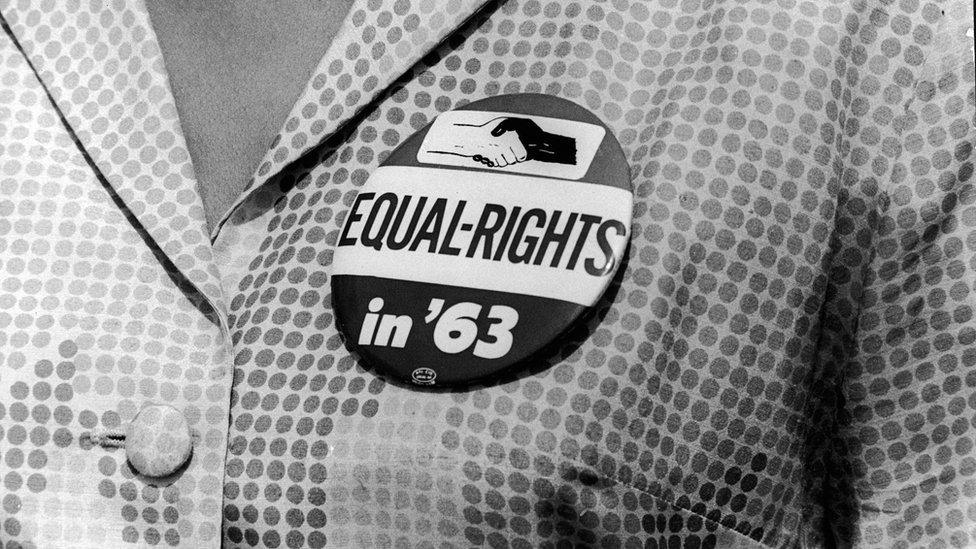
Olive Morris lived at a time when many people were working hard to get equal rights for black people
Olive Morris was an important figure in terms of civil rights.
Black people didn't used to have the same rights as other people, simply because of the colour of their skin - and Olive was one of many people who worked tirelessly to change that.
She campaigned for the rights of black people in South London and Manchester, and was a founding member of groups like the Organisation of Women of African and Asian Descent (OWAAD) and the Brixton Black Women's Group.
She died at the age of just 27, but even by this age she had contributed an enormous amount to black communities across the country.
Margaret Busby (1944-today)
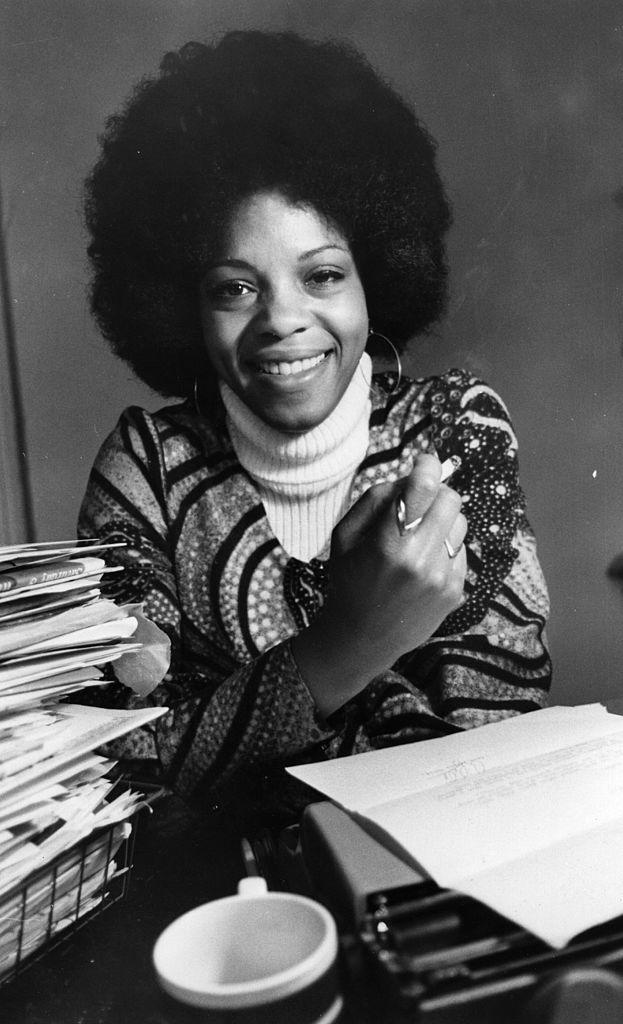
Margaret is an extremely influential name in the world of publishing.
She was Britain's youngest and first black female book publisher, when she co-founded the publishing company Allison & Busby in 1967, alongside a man called Clive Allison.
The company didn't only publish work by black writers, but it did help to make the names of many black writers more well-known.
Talking about writing today, Margaret says: "Technology permits you to be your own publisher and editor, which should encourage a lot of us - especially young people - to write and express themselves.
"Write because you really enjoy it and learn to be a good reader because the best writers read voraciously. Get to know the best books out there."
Malorie Blackman (1962-today)
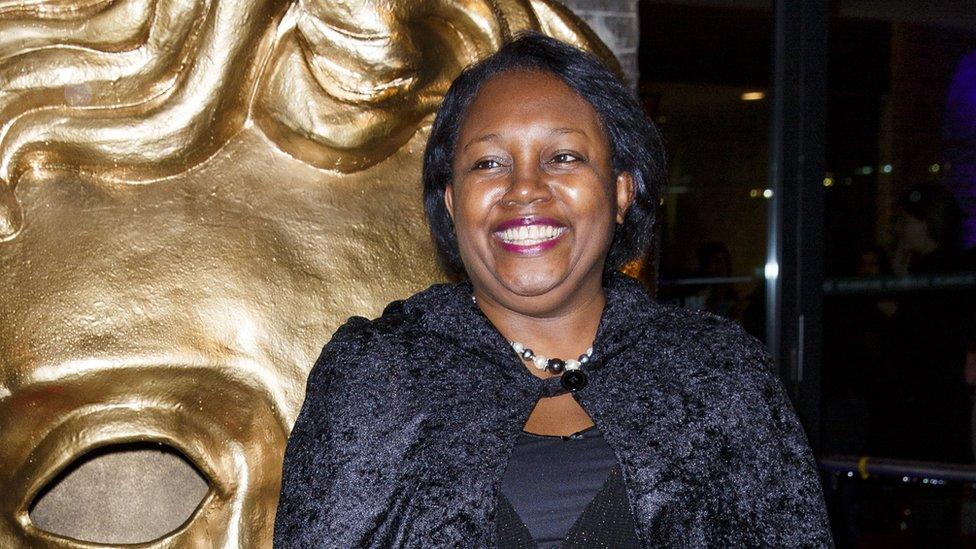
Another author you may well have heard of is the best-selling author of the Noughts & Crosses series - Malorie Blackman.
When she was chosen to become the eighth Children's Laureate, she became the first black person to take on the role.
She got the job in 2013, before passing on the baton to British illustrator and writer Chris Riddell in 2015.
Malorie says she wanted to "make reading irresistible" for children, by encouraging them to explore a range of literature, from short stories to graphic novels.
Martin caught up with her at the time to find out why she got into writing.
Dr Shirley Thompson
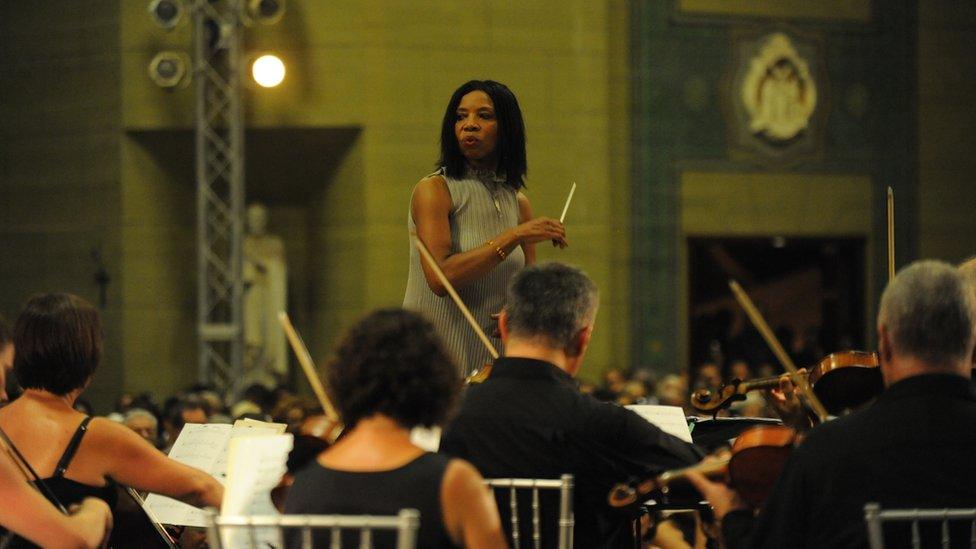
Dr Shirley Thompson was named as "one of the most inspirational Black British women" by the newspaper Metro.
In 2004, she became the first woman in Europe to conduct and compose a symphony in the past 40 years. It was called New Nation Rising, A 21st Century Symphony.
The piece of music celebrated London's history and was composed to mark the Queen's Golden Jubilee in 2002.
She has also written pieces to be used in films, on television, by dancers and on stage.
Because of her work, she was named in the Evening Standard's Power List of Britain's Top 100 Most Influential Black People in 2010, 2011, 2012, 2013, 2014, 2015 and 2016.
Zadie Smith (1975-today)
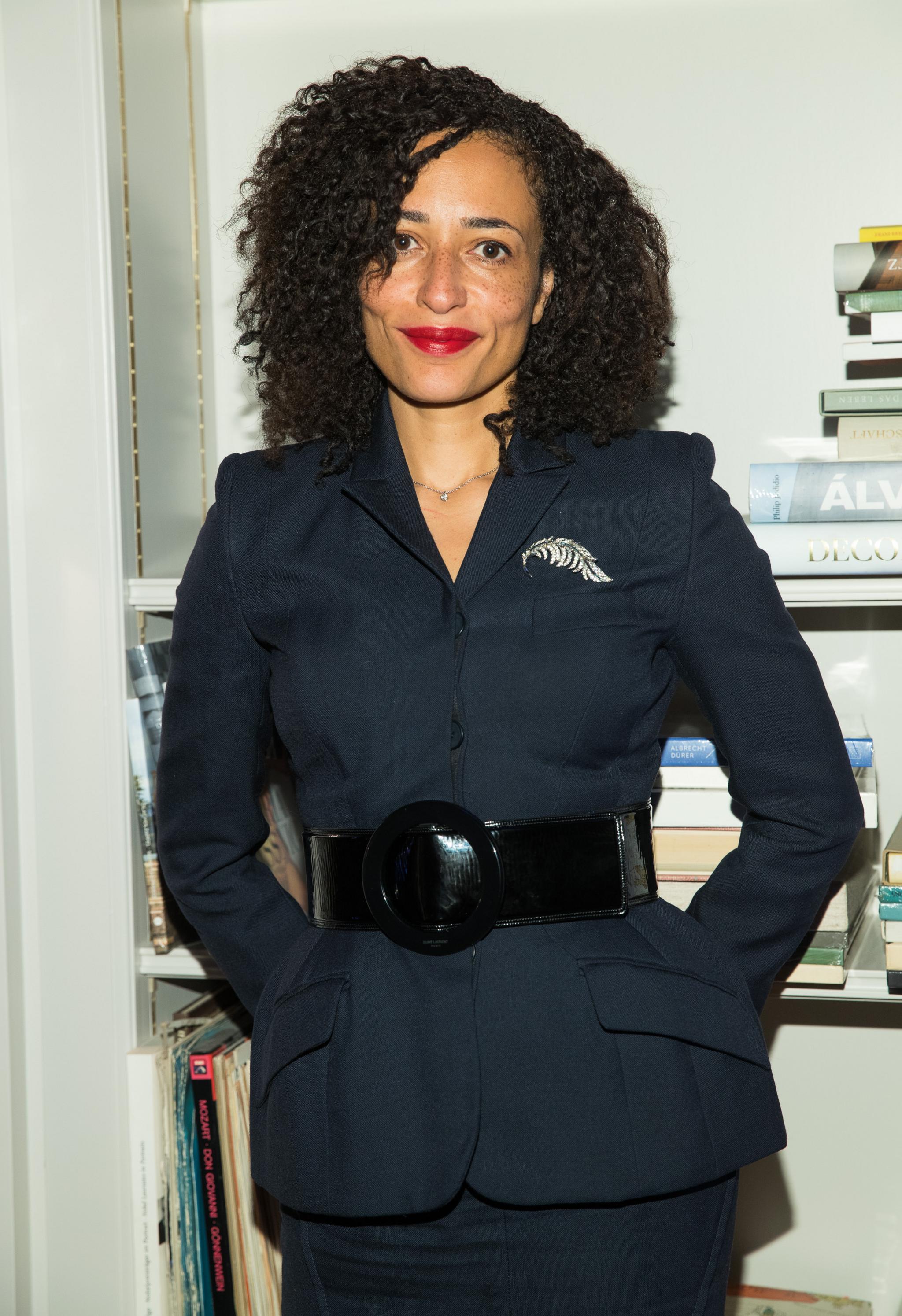
If you go into a book shop, you are very likely to spot one of Zadie Smith's books on the shelves.
She is an extremely successful author, having published her first book at the age of just 24.
Her books, which are inspired by her experience of issues around race and what society is like, have received many prizes.
She has also written essays and short stories, and now teaches creative writing at New York university.
- Published2 October 2020
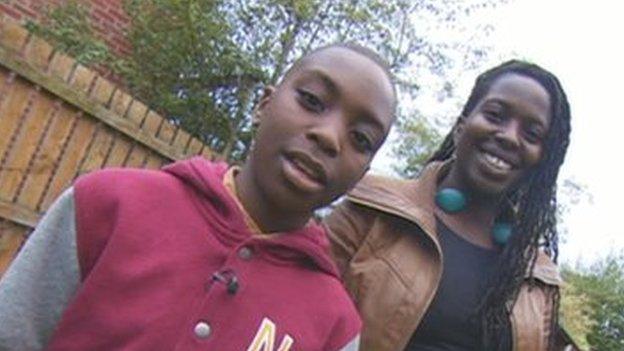
- Published4 July 2016
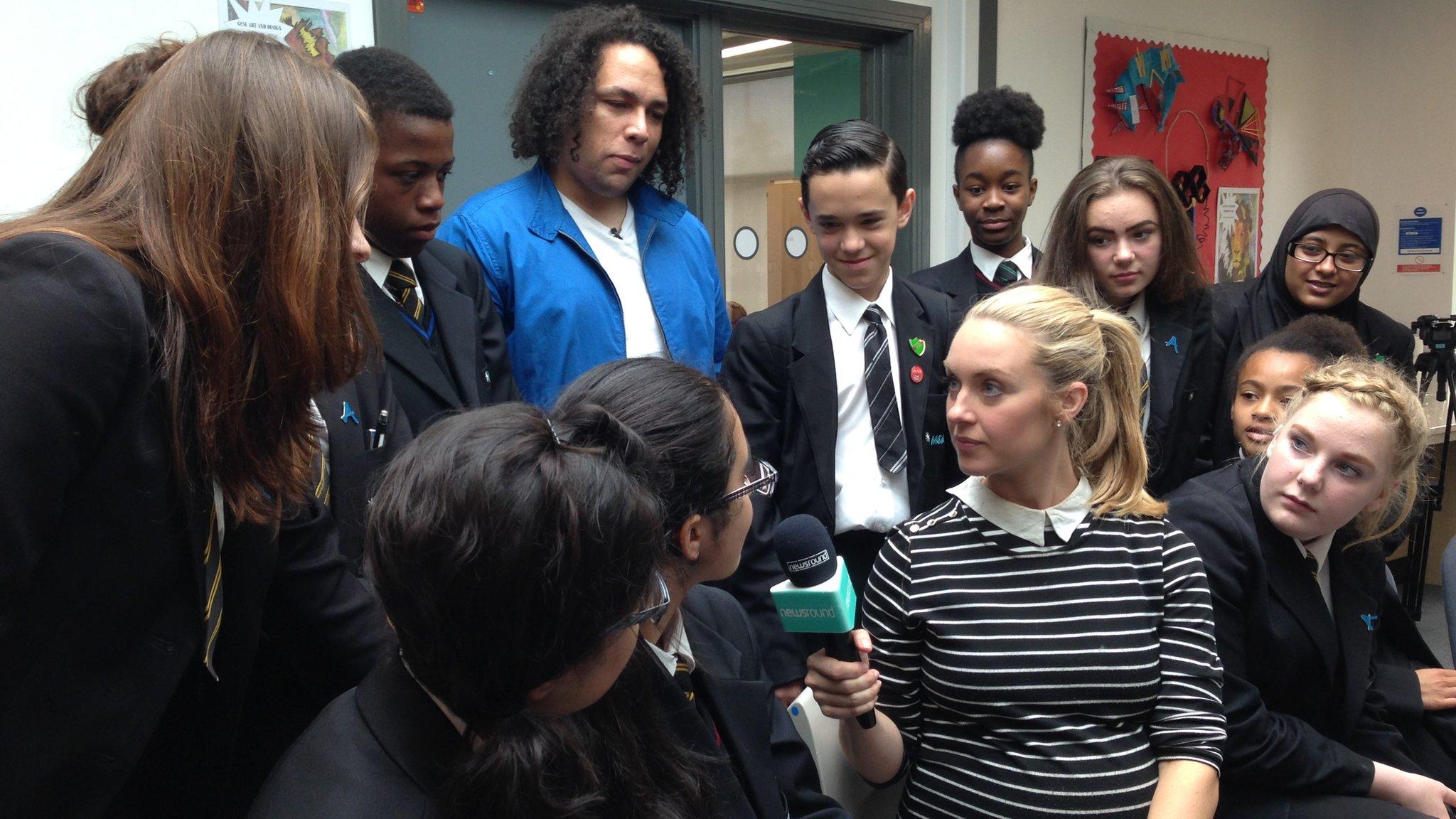
- Published2 June 2015
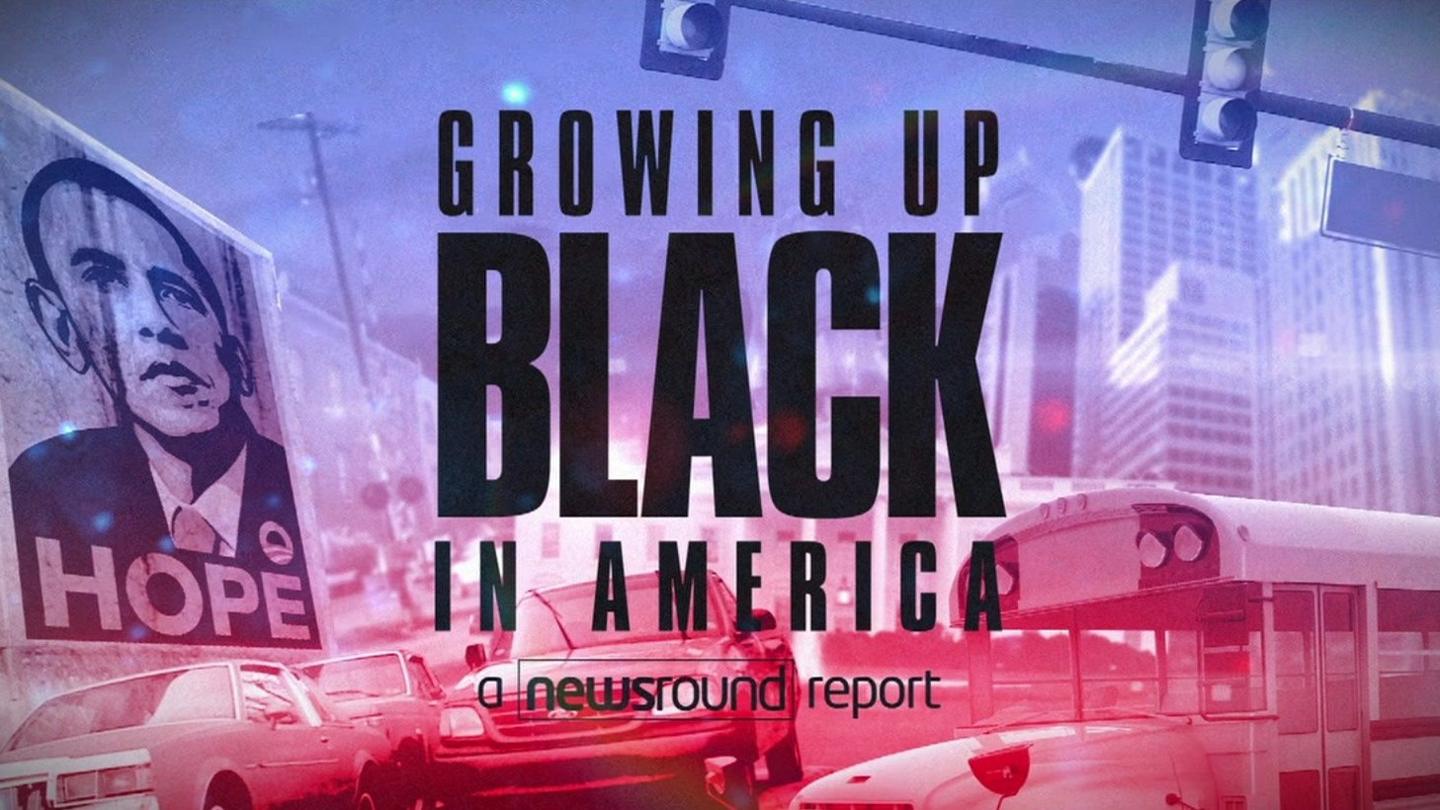
- Published30 June 2016
